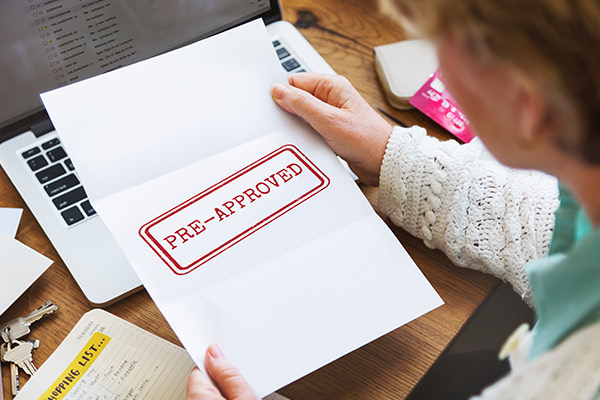If you’re about to embark on the journey of buying a home, you’ve likely come across the terms “pre-qualification” or “pre-approval.” If you’re not familiar with what this is, it’s the process where a potential lender reviews your financial information to determine the mortgage amount you might qualify for. This includes information such as your income, debts, and credit score. Once they have their pre-qualification, many buyers think they’re good to go, but does a pre-qualification guarantee you a mortgage?
As handy as it is to have a pre-qualification, it’s important to understand it does not promise you a mortgage. Your pre-qualification is based on a very specific moment in time, so it doesn’t guarantee you anything. Here are some reasons why this is the case, but why you should get pre-qualified anyway.
You’ve experienced an increase in debts
The important thing to remember is that when you’re pre-qualified, the lender is looking at your situation at that current moment, but they have no assurance your situation won’t change in the future. They will reassess when you apply for a mortgage to make sure your finances are the same as they were at the time of the pre-qualification.
What does this have to do with your pre-qualification guarantee? If you experience an increase in debts after you’ve been pre-qualified, your mortgage approval may be impacted. Whether you’ve taken out new credit cards, new loans or bought a new car, these are all new forms of debt that will take up a chunk of your available credit. This can cause the lender to worry you won’t be able to handle a mortgage on top of these debts. Even if you haven’t taken out any new loans, the lender will hesitate to approve you for a mortgage if you’re having trouble with your existing debt.
You’ve had a change in income
Your income obviously impacts your savings, how much you can spend, and your budget for a home. A lender pre-qualified you for a certain mortgage amount based on your income. If you come back with a new job and/or a lower income, a lender might not approve you for that same amount because it will seem less likely you can afford it. Another potential risk is becoming self-employed after being pre-qualified. Even if you start making more money, it’s harder to prove income as a self-employed person, and the mortgage path becomes quite different. Lenders will need different documents, will likely have different products and rates, and will overall need to change their course of action. It’s best not to change your income after you’ve been pre-qualified in order to reduce the chances of your mortgage not being approved.
Your credit score has dropped
If your credit score drops, this implies that you may have missed a payment or sunk deeper into debt. A good credit score shows you can make your payments on time and in full, which is what a lender wants to see before approving you for a mortgage. If your score suddenly decreases, lenders will want to investigate if it will impact your ability to make mortgage payments. For reference, a good credit score is generally around 650. Even if you have your pre-qualification, a credit score drop can derail your mortgage approval.
So, what should you do?
Still get pre-qualified!
Sometimes people wonder whether they should skip the pre-qualification process, and the answer is always no, but why is that? What does a pre-qualification guarantee? Even though it doesn’t guarantee you a mortgage, it gives lenders all the information they need to approve you in the future. This will speed up the approval process when it’s time to apply for mortgage funding. Plus, having that pre-qualification helps you know where you stand, what you need to improve, and what you can afford. It helps you determine your budget and enter the market more confidently and prepared.
Find a real estate agent
Once you have your pre-qualification, you’ll want to find a real estate agent. Realtors help you find homes within your budget, set up viewings for you, and navigate offers and paperwork. Plus, most sellers prefer to work with buyers who have agents, as it shows they are serious. If you need help finding an agent, reach out for a recommendation!
Find a home
Now for the fun part! Between your pre-qualification and your official approval, you’ll of course need to find the home you want the mortgage financing for. Keep your search narrow and specific to move the process along and ensure you find the right home. Make sure to also stay within your budget so you can secure the mortgage financing you need.
But first, contact a broker!
Before you do any of the above, get in touch with a mortgage broker. Brokers can connect you with the lenders most likely to have the right products for your needs. They can also advise you on interest rates, budgets, and how to improve your financial situation before making the purchase. Brokers are your top guide for buying a house and they can make the process much easier for you. Even though a pre-qualification doesn’t guarantee you a mortgage, a broker can use your pre-qualification to help ensure you get the mortgage you need.
If you’re interested in buying a home and have questions about your pre-qualification, get in touch with me!
